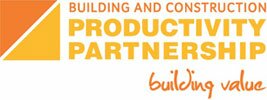|
THAT'S A (W)RAP!
The Evidence Workstream is releasing its final Research Action Plan (RAP) on 22 March at the Productivity Partnership Futurescape event in Christchurch. This follows consultation on the draft plan at the end of last year. The RAP sets out a clear programme of the research needed to support productivity improvement.
"It's about pulling together the evidence that's needed to decide what we need to do to improve productivity," says Evidence Workstream leader Dr Helen Anderson. The Evidence Workstream has undertaken a stocktake of existing productivity research and current Christchurch-related research.
"What we found is that there has been very little local research that directly relates to building and construction sector productivity," says Helen.
The RAP identifies the most important knowledge gaps and key research questions ranging from "What's stopping us from using more efficient construction systems?" to "How are uptake and integration of innovation changing during the Canterbury rebuild?"
"The feedback highlighted that we got it about right, in terms of the key questions we need to ask," says Helen. "Two things to emerge from the consultation are that the industry wants a closer look at the cost of compliance and regulation, and more emphasis on the use of technology to improve productivity."
The research outlined in the RAP will contribute to the development of productivity measures that can be applied at all levels of the industry and help it focus on improvements that will provide the greatest productivity gains.
Helen says the challenge now is finding partners to implement the RAP and that collaboration between the industry, government and research agencies is key to its success.
"We're really pleased that a number of organisations including Scion and Aurecon have stepped up to the plate and offered to contribute to significant pieces of work."
With support from Scion and BRANZ, the Evidence Workstream is already carrying out a series of case studies to examine which aspects of successful projects contribute to productivity improvement. Another project being undertaken with Stonewood Homes, the Volume Builders Project, is looking at productivity improvements over time.
Also underway is the Christchurch Indicators Project. This involves gathering information from the Christchurch rebuild on how streamlined regulation, use of standardisation and different approaches to procurement affect productivity.
"A lot of our work is making sense of productivity statistics so we can see what the real challenges are for the building and construction sector," says Helen. "As they say, knowledge is power, and we intend to empower the industry by providing them with the knowledge they need to boost productivity."
Back to top
|









 Chris Kane was appointed to this new position in December 2011 and is responsible for managing the Productivity Partnership's Secretariat, based in Wellington at the Department of Building and Housing. He is on secondment from BRANZ where he set BRANZ's research and information agenda as part of the executive team.
Chris Kane was appointed to this new position in December 2011 and is responsible for managing the Productivity Partnership's Secretariat, based in Wellington at the Department of Building and Housing. He is on secondment from BRANZ where he set BRANZ's research and information agenda as part of the executive team.